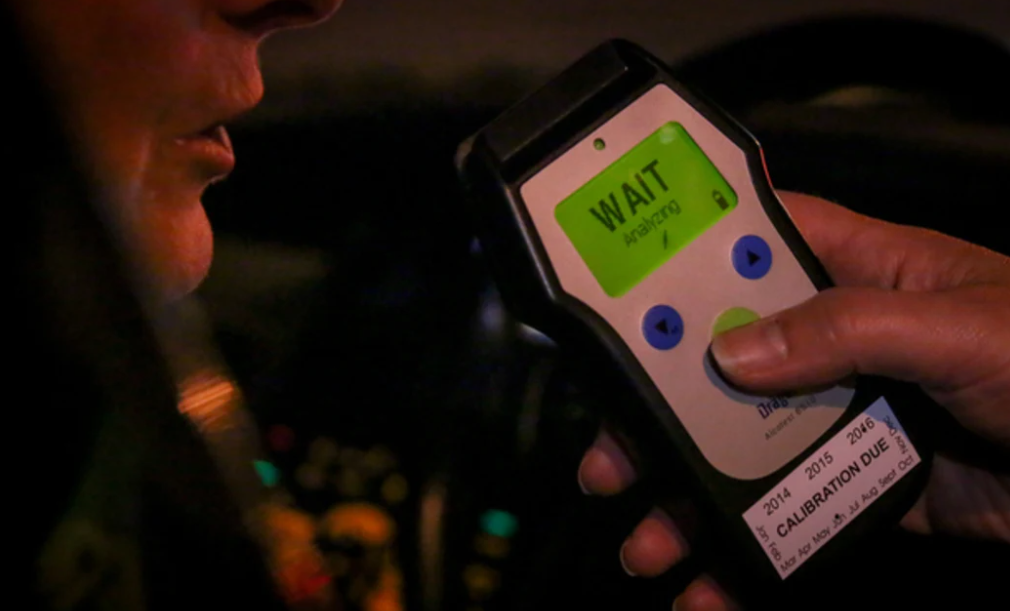Science
New Zealand Police Mandate Breath Test Training Amid Falsification Scandal

All police officers in New Zealand are now required to complete an online training module for alcohol breath testing after revelations that over 100 staff members are under investigation for falsifying test results. This decision follows an alarming report indicating that approximately 30,000 breath tests were either “falsely or erroneously recorded.”
The issue came to light when police developed a new algorithm to analyze testing data, revealing discrepancies that the existing breath testing devices could not detect. A memo sent to staff emphasized that the recent discoveries have adversely affected trust and confidence in the police force, particularly with partner agencies. The memo stated, “Police is committed to restoring that trust and confidence.”
Mandatory Training to Address Trust Issues
As part of their response, the Police Executive has mandated all constabulary staff to complete the online module by December 4, 2023. The training will cover proper device operation, data handling, and the importance of accurate breath screening in maintaining road safety. The module is expected to take approximately 15 minutes to complete and will be available from today.
Acting Deputy Commissioner Jill Rogers highlighted the importance of this training, stating that it reinforces correct practices and responsibilities, especially as the summer period approaches. She noted the pressing need to ensure that every officer understands their role in upholding public trust in the police’s breath testing regime.
Rogers elaborated on the falsification issue, explaining that staff members had clicked their devices more often than they had interacted with motorists. This practice led to the algorithm identifying unusual patterns that fell outside normal parameters. She indicated that some work groups had multiple representatives involved in the discrepancies and expressed disappointment that members of the dedicated road policing teams were among those implicated.
Pursuing Accountability and Investigations
The investigation into the falsified tests has raised concerns about potential criminal activity. Rogers stated that while the police have not yet identified specific individuals involved, they are committed to determining the reasons behind the falsifications. She did not rule out the possibility of criminal investigations for those who manipulated test results to meet performance targets.
The New Zealand Police have conducted over 4.2 million legitimate tests, contributing to the lowest number of alcohol-related fatalities on the roads in the previous year. Rogers expressed her confusion over why some staff felt compelled to falsify results when the police had already exceeded the national target of 3.3 million tests set by the Road Policing Investment Programme (RPIP) by nearly 900,000 tests.
A spokesperson for the New Zealand Transport Agency (NZTA) confirmed that they were informed of the issue in September and expressed serious concern regarding the integrity of drink-driving enforcement. They are closely monitoring the situation and have requested further information from the police as the investigation progresses.
A spokesperson from the Ministry of Transport indicated that they have been briefed on the matter and are actively collaborating with both the NZTA and police to ensure appropriate oversight of the situation. The Ministry emphasized the importance of maintaining high standards in road safety enforcement.
As the police force works to regain public trust, the emphasis on rigorous training and accountability will be crucial in restoring confidence in New Zealand’s breath testing processes.
-

 Sports2 months ago
Sports2 months agoNetball New Zealand Stands Down Dame Noeline Taurua for Series
-

 Entertainment2 months ago
Entertainment2 months agoTributes Pour In for Lachlan Rofe, Reality Star, Dead at 47
-

 Entertainment4 weeks ago
Entertainment4 weeks agoNew ‘Maverick’ Chaser Joins Beat the Chasers Season Finale
-

 Sports5 days ago
Sports5 days agoEli Katoa Rushed to Hospital After Sideline Incident During Match
-

 Sports2 months ago
Sports2 months agoSilver Ferns Legend Laura Langman Criticizes Team’s Attitude
-

 Politics1 month ago
Politics1 month agoNetball NZ Calls for Respect Amid Dame Taurua’s Standoff
-

 Entertainment2 months ago
Entertainment2 months agoKhloe Kardashian Embraces Innovative Stem Cell Therapy in Mexico
-

 World3 months ago
World3 months agoPolice Arrest Multiple Individuals During Funeral for Zain Taikato-Fox
-

 Sports3 months ago
Sports3 months agoGaël Monfils Set to Defend ASB Classic Title in January 2026
-

 Sports2 days ago
Sports2 days agoJamie Melham Triumphs Over Husband Ben in Melbourne Cup Victory
-

 Entertainment1 month ago
Entertainment1 month agoTyson Fury’s Daughter Venezuela Gets Engaged at Birthday Bash
-

 Sports1 month ago
Sports1 month agoHeather McMahan Steps Down as Ryder Cup Host After Controversy




















